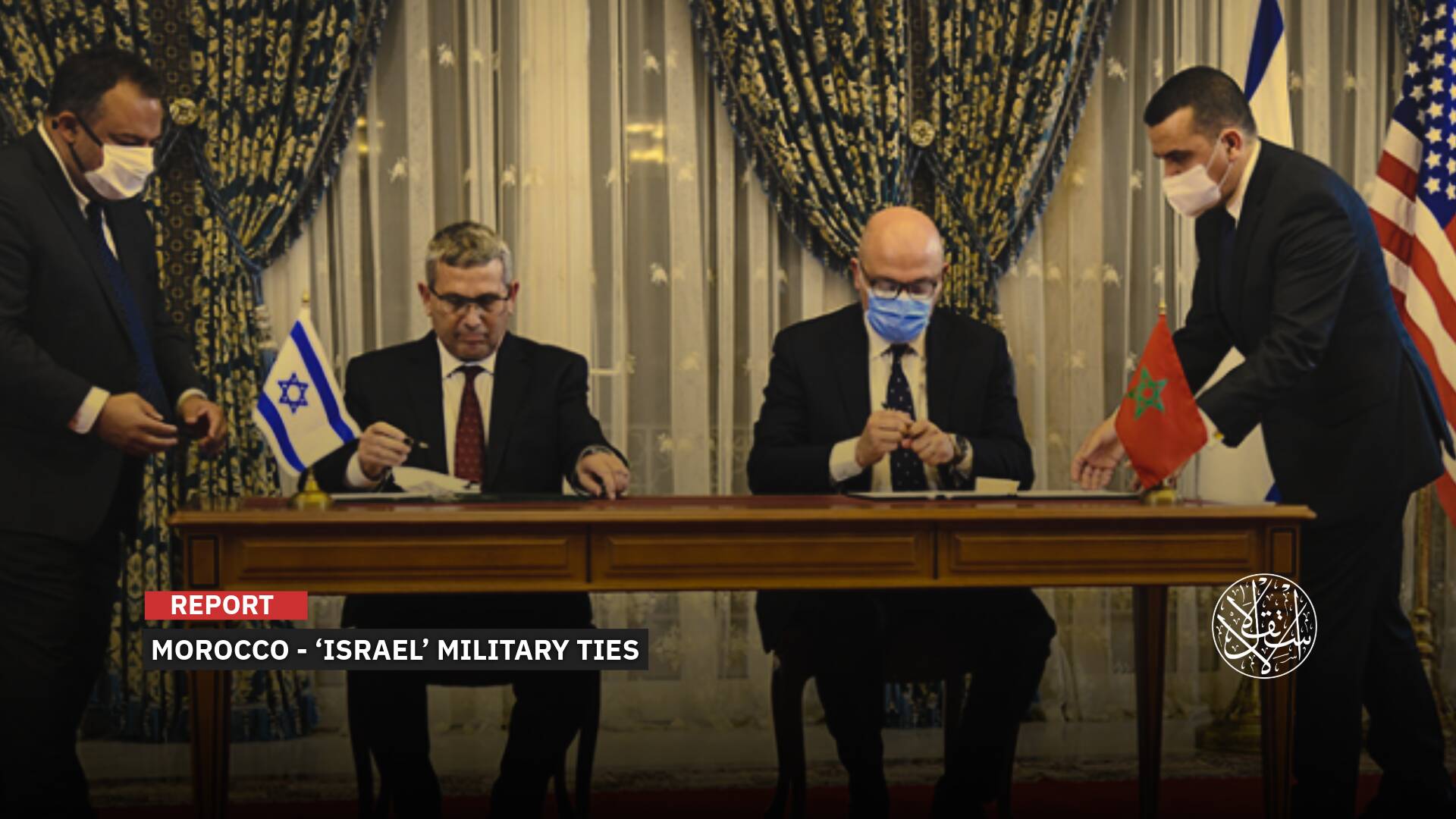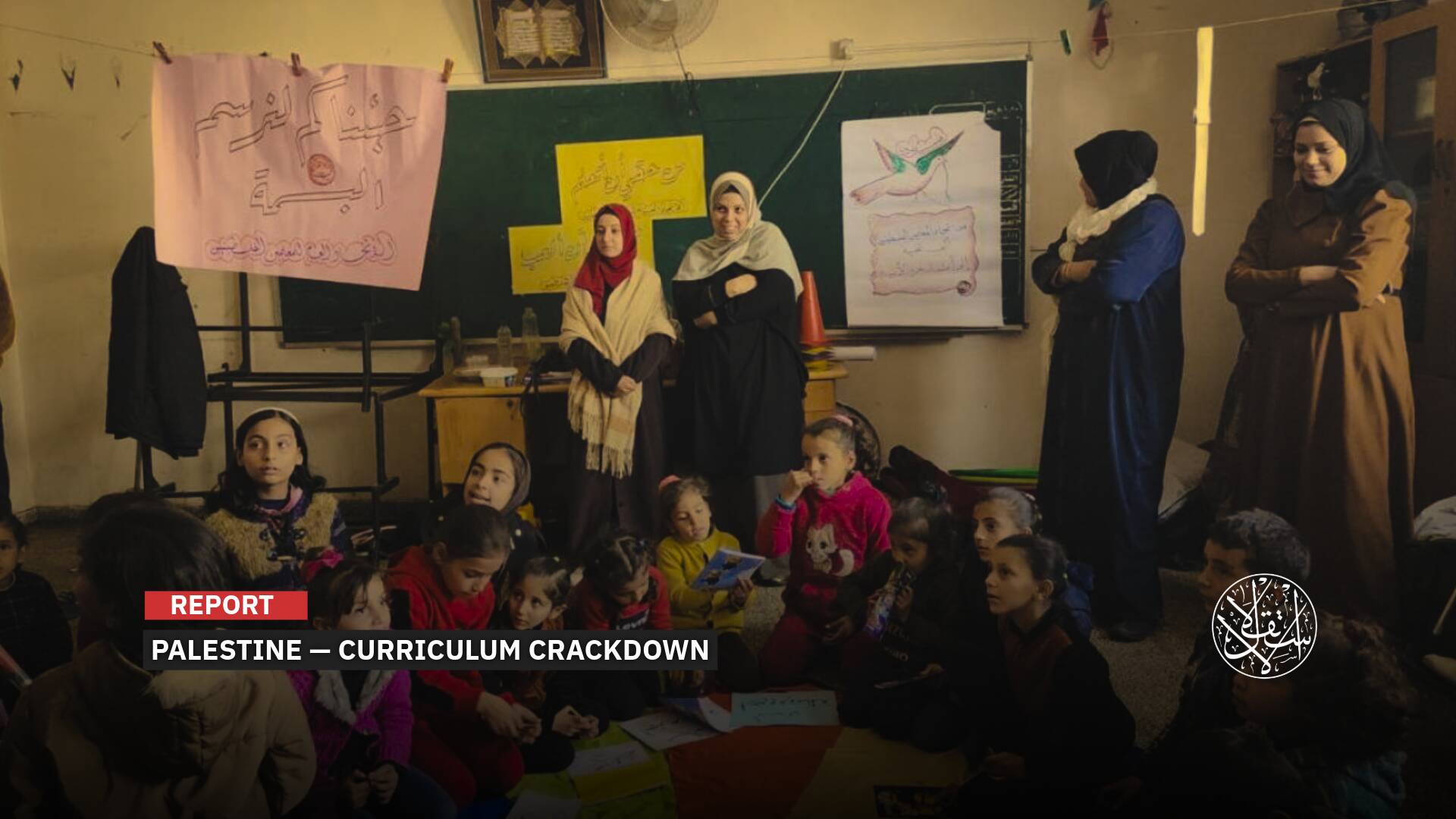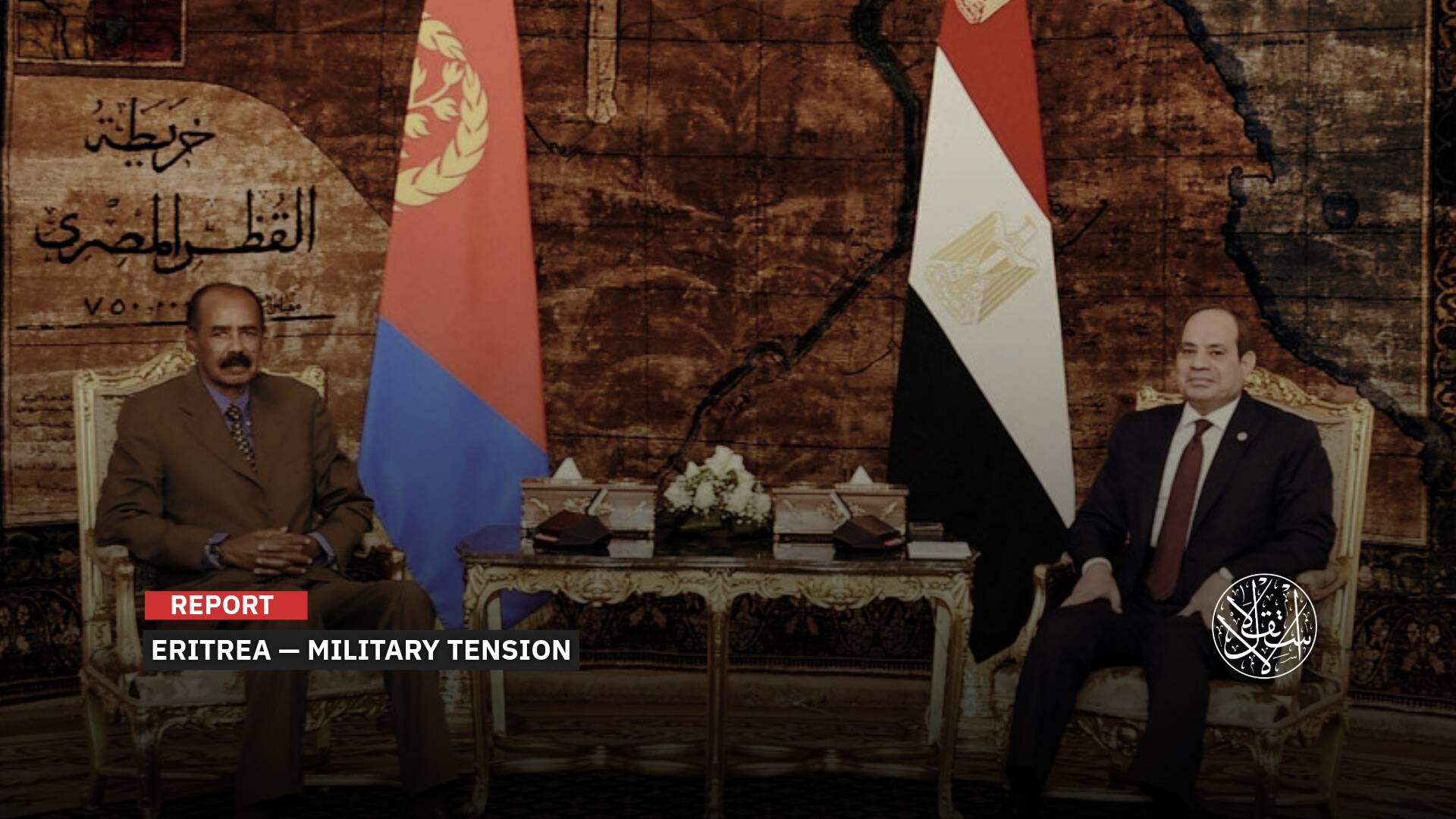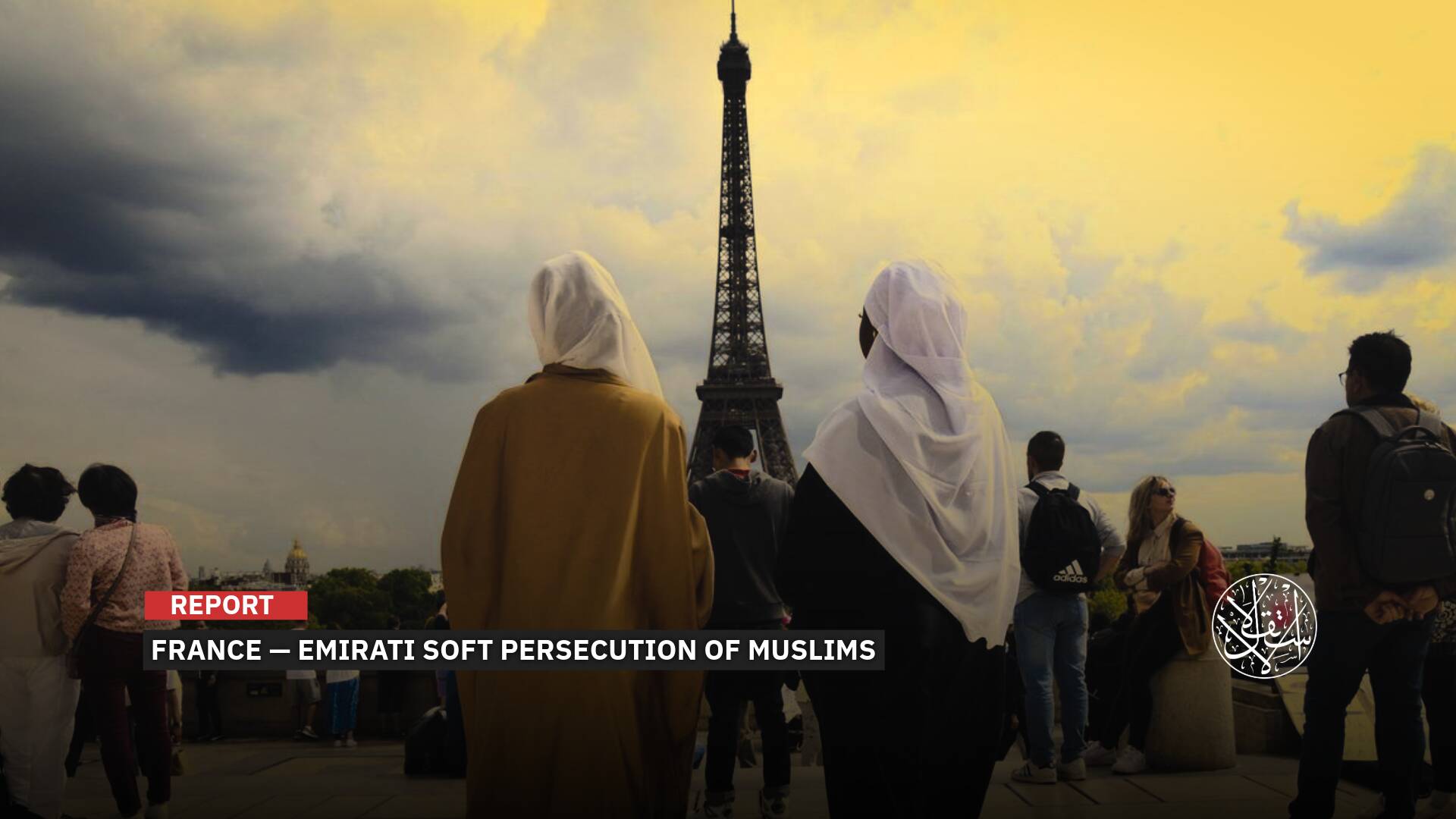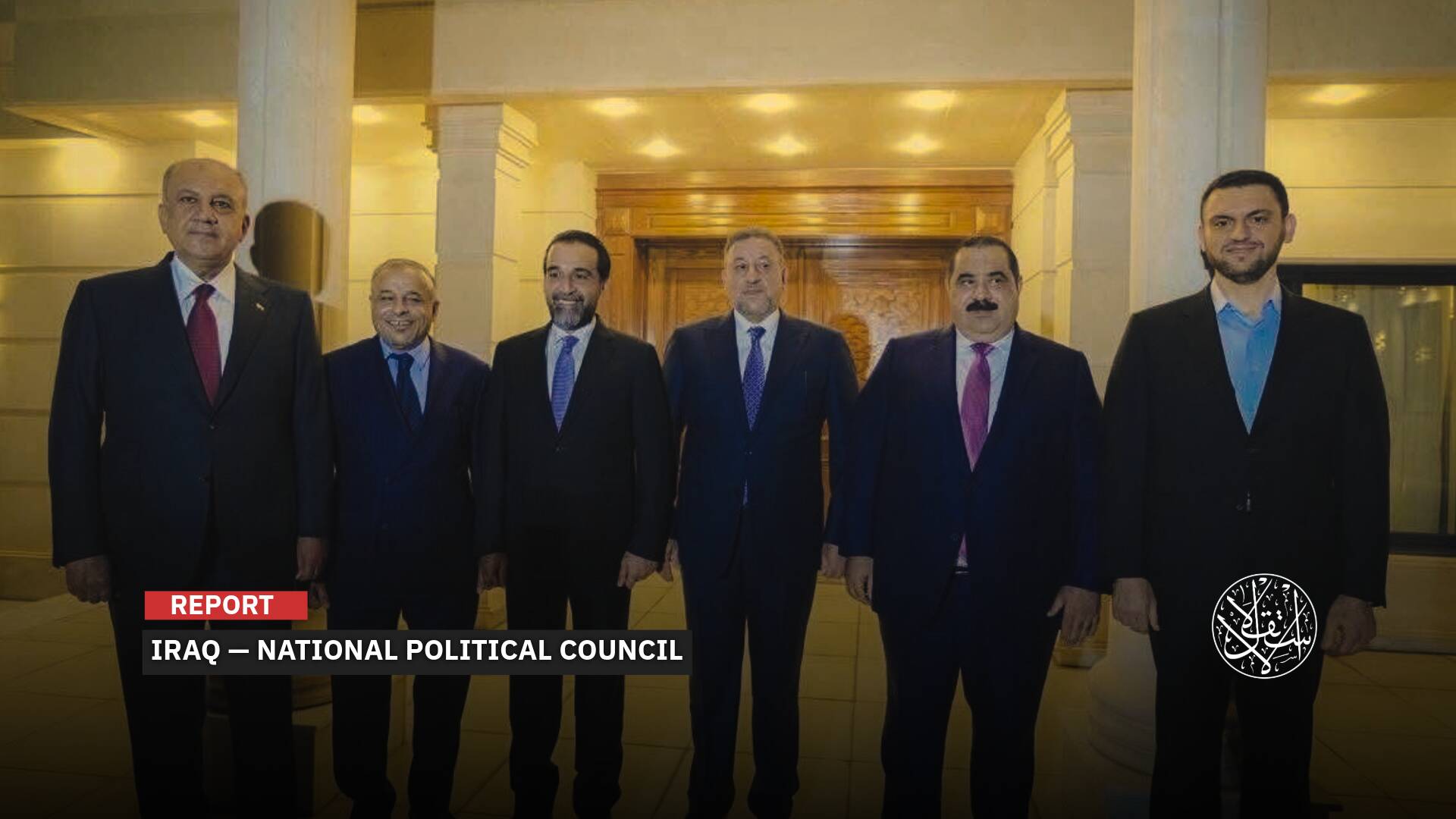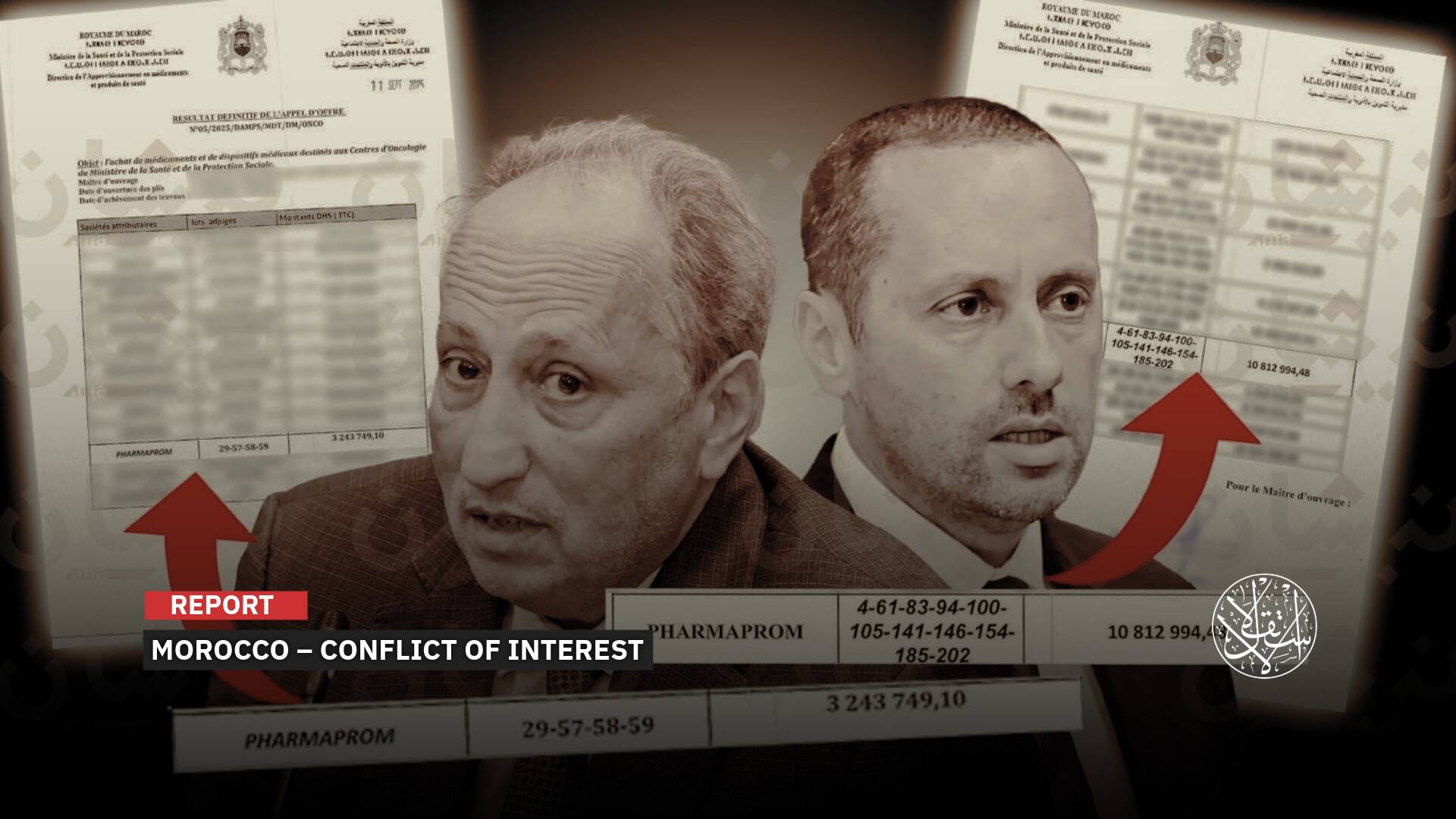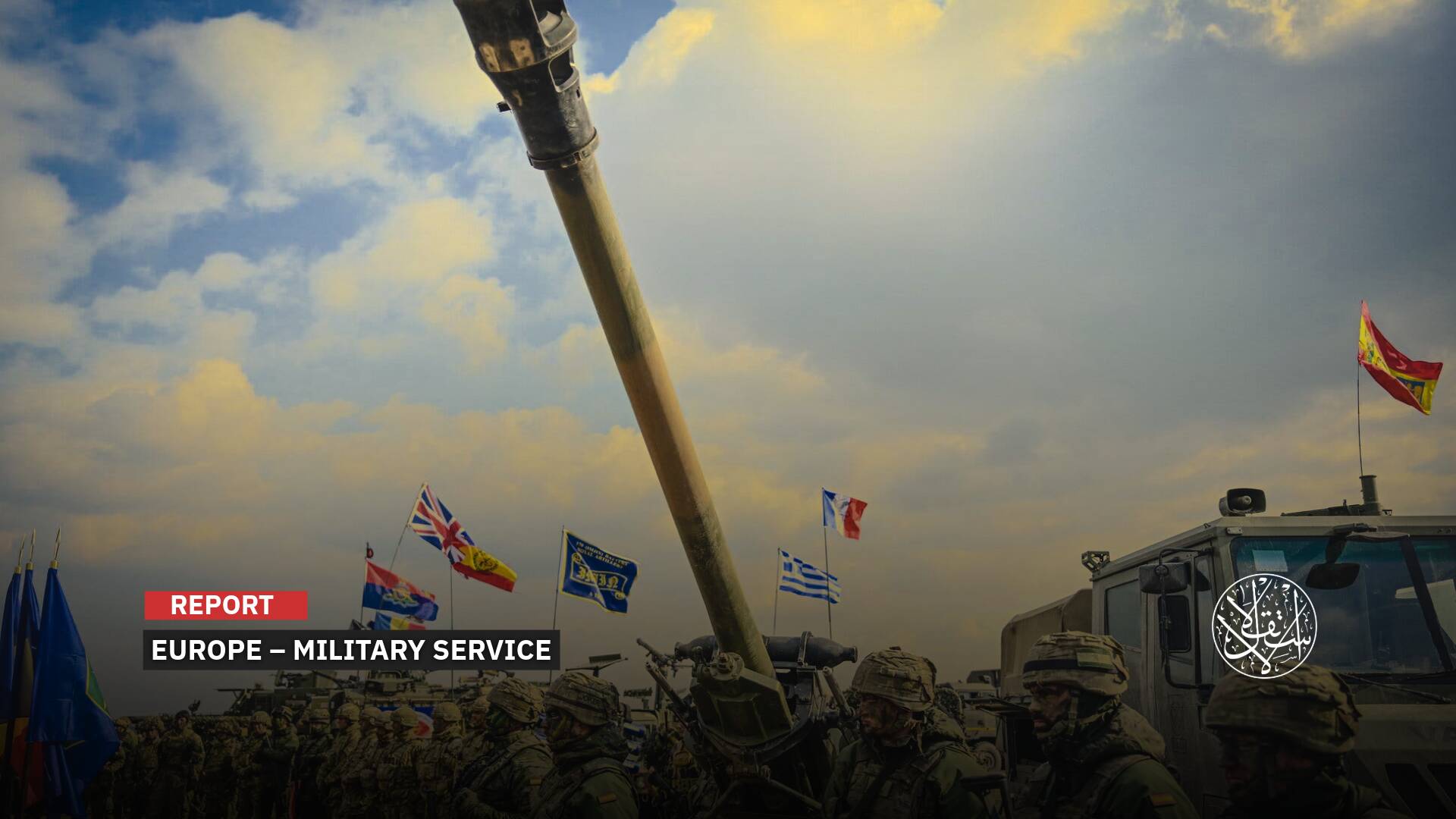Eight Meetings in One Week: What Lies Behind America’s Extensive Maneuvers in Libya?
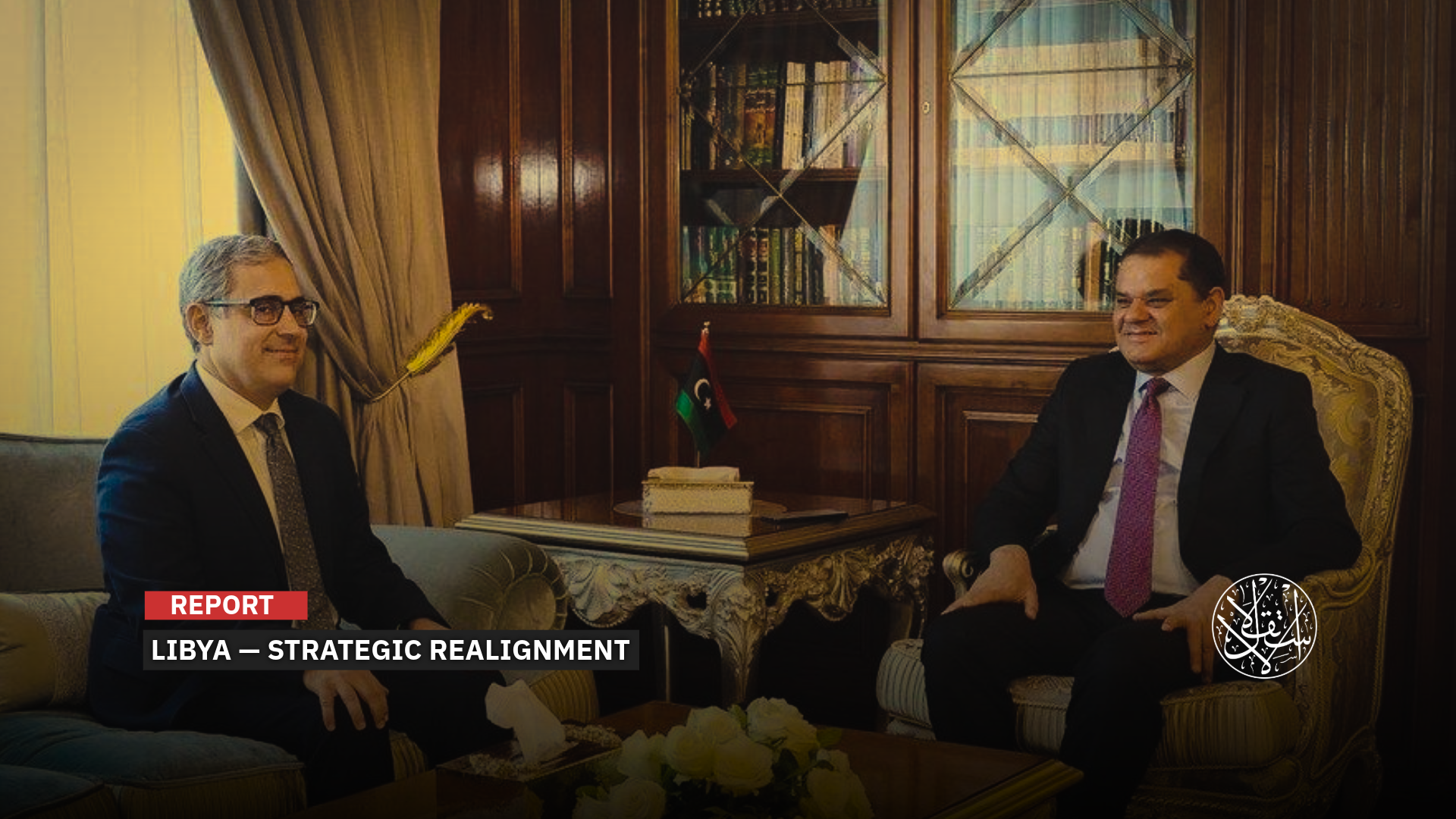
Current indicators reveal the emergence of a new political trajectory in Libya.
Multiple meetings with various Libyan officials were held by the U.S. Charge d’Affaires to Libya, Jeremy Berndt, signaling a notable interest the Donald Trump administration is showing toward Libya.
In just one week, Berndt held eight meetings that included the Prime Minister and heads of Libya’s economic, security and judicial institutions, raising questions about the most prominent aspects of this American activity and its political and strategic objectives.
Future Arrangements
He met with Prime Minister Abdulhamid Al-Dabaiba on September 28, 2025, and in his remarks, he emphasized the unification of institutions and the building of sustainable peace, a message that reflects Washington’s desire to have a hand in shaping Libya’s forthcoming political arrangements.
On the same day, he sat down with Oil and Gas Minister Khalifa Abdul-Sadiq, affirming that "Washington wants to be a key player in the equation of investing in Libya’s energy sector," at a time when global oil and gas markets are facing turmoil and the world is seeking alternatives to Russian dominance.
While energy, politics and security remain central pillars of the American approach, technology and telecommunications have emerged as a new front. On September 28, Berndt met with the chairman of the Libyan Post and Telecommunications Company, Yousef Abu Zwayda.
The meeting signaled Washington’s interest in boosting the presence of its companies in Libya’s digital transformation and cybersecurity sectors, a sensitive domain that opens the door to strategic influence extending beyond direct economics into the state’s infrastructure.
Berndt also held a meeting on September 29 with Presidential Council head Mohamed al-Menfi, during which he praised efforts to de-escalate tensions in the capital and linked internal stability to the international discussions held at the United Nations General Assembly.
Al-Menfi’s vision during the meeting rested on four main pillars, most notably the restoration of full national sovereignty and the rejection of all forms of foreign interference, along with achieving broad national consensus through an honest and inclusive dialogue held inside Libya under an independent national framework.
Security and justice were not absent from Berndt’s agenda. On September 29, he met with Attorney General Al-Siddiq Ahmed Al-Sour to discuss the rule of law and the institutions that enforce it, and on the same day, he held talks with Deputy Defense Minister Abdulsalam al-Zoubi on ways to strengthen military cooperation.
On September 30, Berndt met with Acting Chairman of the National Oil Corporation, Masoud Suleiman, reaffirming support for the corporation’s plans to increase production and enhance commercial cooperation with American companies.
Earlier, the U.S. Embassy in Libya had issued a statement regarding a meeting held at the United Nations on September 23, 2025, to discuss building strong economic foundations for unity and security in Libya.
The meeting brought together senior officials from Egypt, France, Germany, Italy, Qatar, Saudi Arabia, Turkiye, the United Arab Emirates and the United Kingdom.
The statement noted that the meeting’s chair affirmed “the strong commitment of the international community to support Libya on its path toward greater unity, stability and prosperity.”
The chair also emphasized the importance of security integration between eastern and western Libya to boost the country’s role in fostering regional stability and security, stressing “the importance of building a strong economy for Libya to achieve greater security, stability and prosperity.”
Comprehensive Strategy
Libyan political analyst Hussam al-Fnish believes the recent American moves go beyond traditional diplomacy and form part of a broader strategy to redraw U.S. influence in Libya.
Speaking to Al-Estiklal, al-Fnish noted a clear focus on economic dimensions, chief among them oil and Libya’s frozen assets.
He explained that these assets, which amount to around $70 billion in the United States, represent a strategic lever for Washington, one it is using to influence Libya’s centers of power and calibrate the balance of negotiations between east and west.
He pointed out that ensuring the steady flow of Libyan oil is a key American priority, given the growing global demand for energy in light of ongoing international crises.
Al-Fnish warned that Washington is relying on non-traditional tools to extend its influence inside Libya, through both formal and informal networks of influence that blend diplomacy, economic interests, and even family ties, granting it greater flexibility and leverage over Libya’s evolving political landscape.
He sees this strategy as an attempt to reshuffle the balance of power within Tripoli, while economically and commercially linking east and west through settlements brokered under a direct or indirect American umbrella.
Al-Fnish emphasized that these recent U.S. moves reflect a clear shift toward reintegrating Libya into Washington’s foreign policy priorities after years of hesitation.
He concluded that while Washington seeks to curb the influence of rivals, especially Russia, it is simultaneously working to deepen its own presence through complex political, security, and economic instruments.
Meanwhile, the Libyan outlet al-Shahid, in a report dated September 30, 2025, stated that this flurry of diplomatic activity has left a clear message: Washington does not intend to leave a vacuum in Libya to be filled by competitors such as Russia, China or even regional powers.
The outlet added that the U.S. is seeking to reposition itself at a transitional moment, as debates continue over electoral laws and the UN road map, while Libya remains mired in unresolved institutional and security divisions.
It stressed that holding eight meetings between September 28 and 30 is far from a mere diplomatic formality, but a signal that the United States is recalibrating its Libya equation on multiple fronts.
The report concluded that the core of this equation is “ensuring political stability, securing a foothold in the energy sector, engaging in the architecture of security and institutions, and opening channels of influence in technology and telecommunications.”
In a country where external balances hold as much sway as internal dynamics, these American signals are likely to form part of the broader contest of influence that will shape Libya’s future in the years to come.
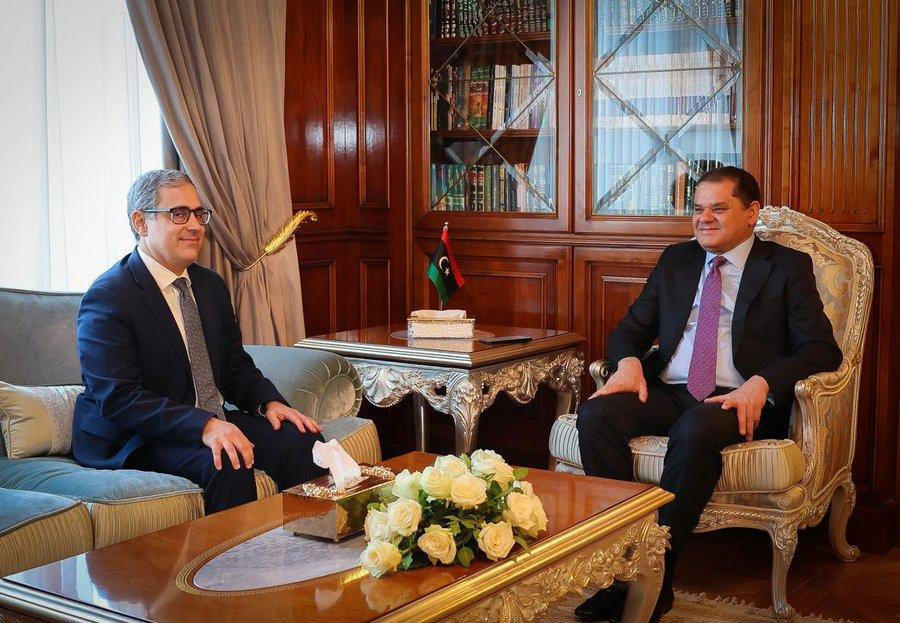
UN Warning
As American moves accelerate on the ground in Libya, the UN Special Representative and Head of the United Nations Support Mission in Libya (UNSMIL), Hanna Serwaa Tetteh, expressed her hope that “the United States coordinates its actions in Libya with the United Nations.”
“This is to ensure the effective implementation of the new political roadmap that I recently presented to the Security Council and the Libyan parties,” Tetteh said.
According to the Libyan news site al-Wasat, Tetteh said the mission is fully prepared to work with Security Council members and other countries to determine how best to advance the political roadmap, and that it remains open to doing so with the United States as well.
In her briefing to the Security Council on August 21, 2025, Tetteh outlined a roadmap built on three fundamental pillars, including the preparation of a technically sound electoral framework, the unification of institutions through a new unified government, and the organization of a “structured dialogue” enabling broad participation by Libyans.
Tetteh said the roadmap “will be implemented through a phased, sequential process, over a timeframe ranging from 12 to 18 months,” noting that its success depends on strengthening the electoral commission through the reformation of its board to fill existing gaps and address the issues that prevented elections in 2021.
In remarks reported by local media, law professor Raqi al-Mismari observed an intersection between the US moves and the UN process.
Al-Mismari explained that “it has become completely clear that there is a US plan for a solution in Libya based on what is called economic and security foundations.”
“The plan appears integrative on the surface with the UN mission’s plan, but at its core they seem completely different; the U.S. plan focuses first on the economy and then on security, suggesting that the stability of these two factors will positively affect the climate for a political solution,” he elaborated.
The Atlantic Council, a U.S.-based international affairs think tank, noted that in recent years Washington’s policy towards Libya has focused on building stability, with an emphasis on encouraging steps toward security integration and preserving the autonomy of key sovereign institutions and their technocratic nature, such as the National Oil Corporation and the Central Bank of Libya.
In a report published on October 3, 2025, the Atlantic Council explained that under the leadership of Paul Massad, senior adviser to President Donald Trump on Africa, the United States has recently intensified its focus on commercial engagement, prioritizing support for American companies seeking to enter Libya’s lucrative market.
The report also suggested that the U.S. might ally with other influential countries in Libya’s landscape, notably Italy and Turkiye, which “could make a difference in Libya.”
It pointed out that Washington’s influence plays a significant role in encouraging Rome and Ankara to follow a U.S. policy based on balance in their approach to Libya.
The council argued that cooperation between these countries and the parties in Libya’s eastern and western regions enhances their economic opportunities in the country, particularly if institutions are unified and reforms are achieved.
The report, authored by Frank Talbot and Karim Mezran, stated that by September 2025 “it had become clear that these influential countries agree on what was formerly known as the U.S. approach of balanced engagement across Libya’s divide.”
They added, “This strategy appears pragmatic, given that any political or economic settlement in Libya lacks credibility without eastern influence brokers at the table.”
The authors believe that sustained diplomacy by Washington, Ankara and Rome with factions in both eastern and western Libya could enhance the economic opportunities enabled by institutional unification and reform.
The report noted that Rome’s calculations differ from Washington’s, with Italy focusing on migration issues, especially as Libya remains a central hub on the main Mediterranean route. Meanwhile, natural gas imports and energy projects are fundamental to Italy’s long-term economic security.
At the same time, Ankara views Libya as an economic and geopolitical arena. Its military presence and commercial contracts grant it influence, while recent contacts with eastern regional leaders signal a desire to wield influence with both sides of the conflict.
The report highlighted that Paul Massad met with Turkish Foreign Minister Hakan Fidan in August 2025, where they discussed Libya-related engagements and joint efforts to deepen cooperation.
Massad’s visit to Rome in September 2025 demonstrated this alignment between Turkish, American and Italian strategies.
Energy projects, infrastructure initiatives and trade opportunities are now frequently linked with security cooperation and migration management.
The underlying logic appears to be that commercial activity can expand alongside progress in stabilizing the security sector, and consolidating key government institutions.
The council noted that while each country focuses on different priorities, they agree on a framework that views economic engagement and institutional unification as mutually reinforcing steps toward stability in Libya.
According to the Atlantic Council, the current challenge is to ensure that this convergence addresses Libya’s deeper problems, as corruption and rampant violations by armed groups on both sides remain unchecked.
The report concluded that if these issues are ignored, increasing international activity in trade and security could exacerbate, rather than resolve, Libya’s imbalances.
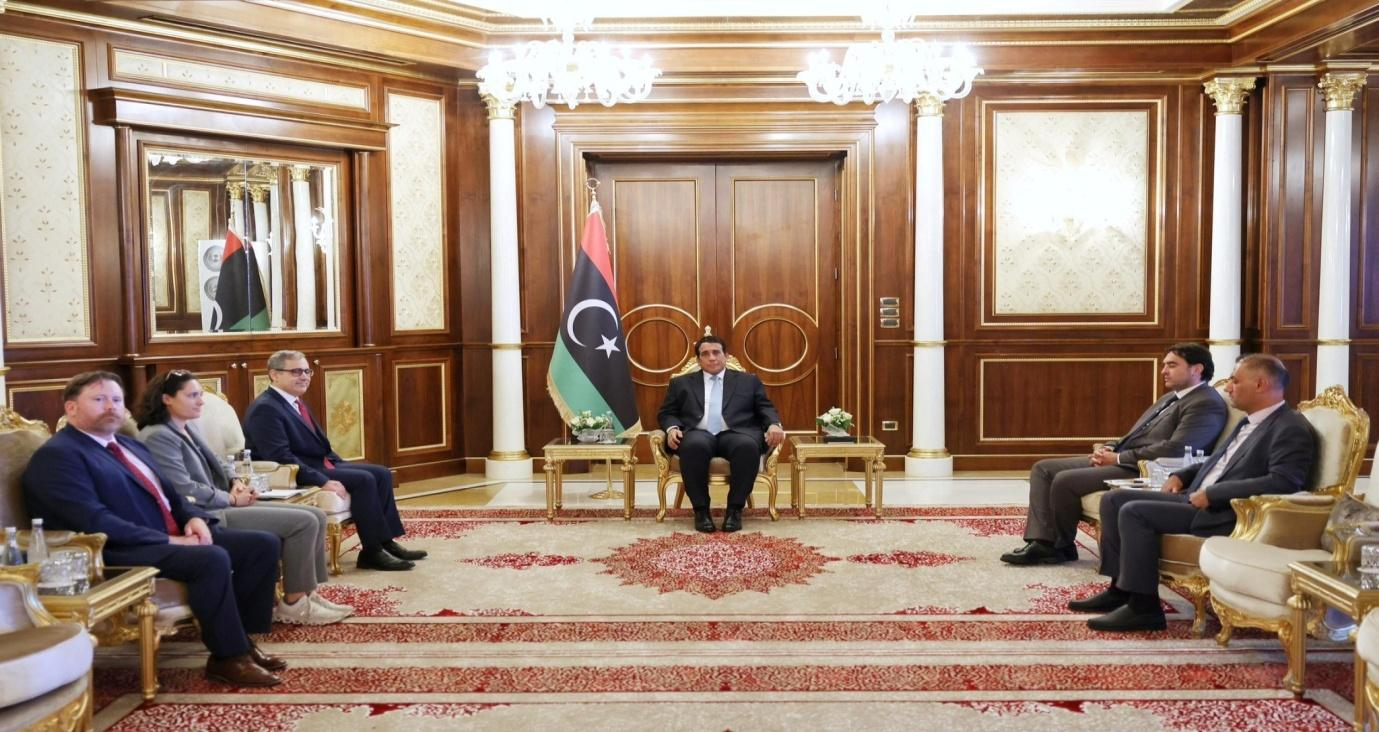
New Path
From another perspective on these American moves, Khalifa Hawass, former dean of the law school at Sirte University, sees current indicators pointing to the emergence of a new political path in Libya, driven by international will, foremost among it the United States, diverging from the efforts led by the UN mission.
According to the Libyan site al-Saa’a 24 on September 27, 2025, Hawass noted that “the presence of a new government has become a domestic and international demand; it is impossible to talk about elections without a unified executive authority, and no institutional unification without it.”
He added that this government, if agreed upon, “will only be born under explicit international sponsorship and will,” stressing that the primary driver of this direction is the American administration, or what he described as “friendly states.”
Hawass affirmed that the interests of major powers, chiefly the United States in eastern Libya, have made the “division of the cake” an additional incentive to support the formation of a new consensus government emerging from the reality of actual control on the ground, rather than from political agreements alone.
He explained that “America has been considering forming a new government for some time, but this time its proposal was direct and clear.” He pointed out that Washington has started speaking openly about this project, signaling a qualitative shift in its approach to the Libyan file.
According to Hawass, “The roadmap adopted by the UN mission has not been implemented, evidenced by the fact that neither the House of Representatives nor the State Council made any progress over the past two months, without the mission showing any concern or serious action,” which he described as evidence of “the return of the old approach based on international silence towards the paralysis of political tracks.”
“Two active forces on the ground today as the interim unity government, internationally recognized, and the armed forces in the east,” he said, affirming that “any future government will be formed through understandings specifically between these two parties.”
“The American administration, through its envoy, appears convinced of the necessity to bypass existing bodies, which means that any future outcomes will be under American supervision and blessing first and foremost,” he concluded.
Sources
- Hawwas: Washington moves openly to form a new government away from the UN mission [Arabic]
- US, Italy, and Turkiye alignment could push the needle in Libya
- Presidential statement on the meeting of senior officials concerned with Libya [Arabic]
- Tetteh urges the United States to coordinate its actions in Libya with the UN mission [Arabic]
- Jeremy Brent holds 8 meetings with Libyan officials in one week... Why so many meetings? [Arabic]


